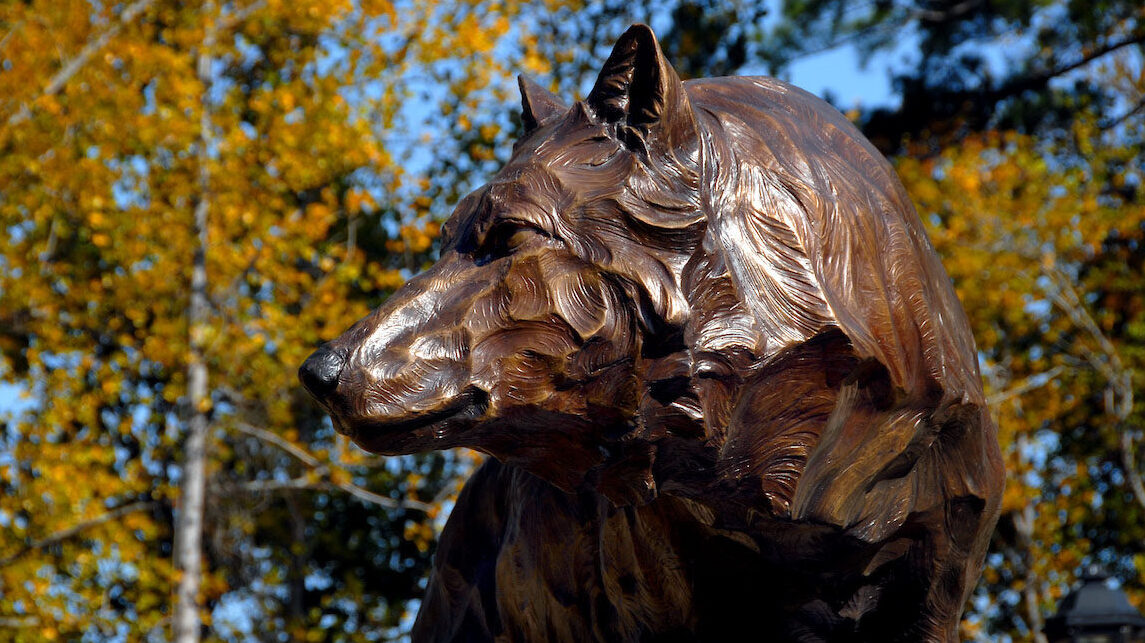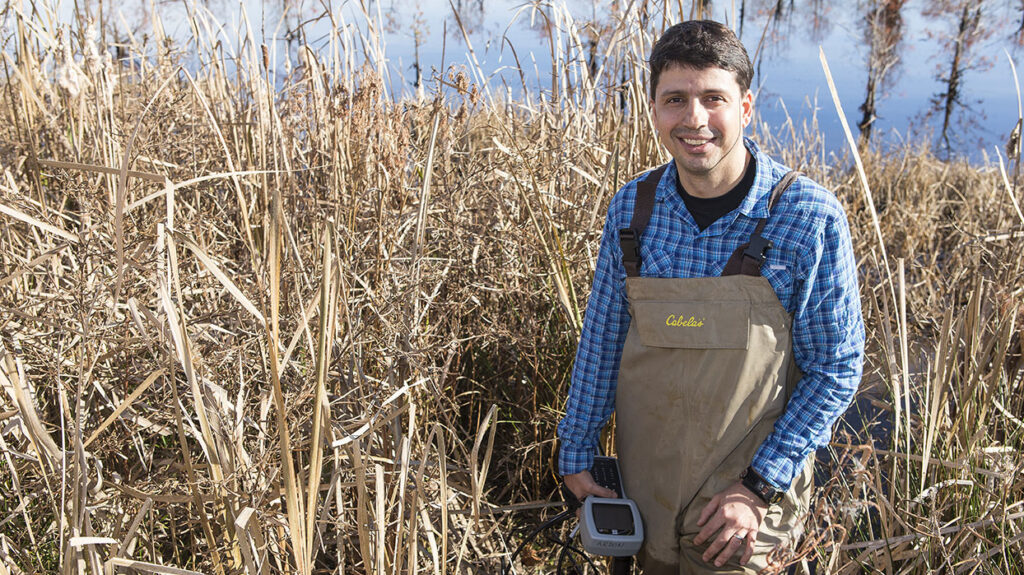Faculty Members Named Mentor Winners
Marcelo Ardón and Thomas Shriver are recognized for mentoring graduate students

Faculty members from the College of Natural Resources and the College of Humanities and Social Sciences were named 2019 Outstanding Graduate Faculty Mentors by the Graduate School.
Marcelo Ardón, associate professor in the Department of Forestry and Environmental Resources, was recognized in the category of biological and life sciences. Thomas Shriver, professor in the Department of Sociology and Anthropology, was recognized in the category of social sciences, business and education.
Both individuals received the award in recognition of excellence in mentorship based on nominations from graduate students and a truly exemplary track record of outstanding mentorship. A committee comprised of graduate faculty with demonstrated success in mentoring selected the winners, and only one award across the university is made in this category every two years.
In recognition of their accomplishments, both Ardón, and Shriver will receive a plaque and a cash award of $1,000. Both also will be part of the newly established Academy of Outstanding Faculty Mentors, whose members may be called upon periodically to share their expertise with the university community.
Since 2015, the Graduate School has recognized outstanding faculty mentors, who are nominated by their current or former students. The nomination categories rotate each year. Though the honorees were named in the spring 2020, the nominations were accepted in the fall 2019.
Marcelo Ardón, associate professor in the Department of Forestry and Environmental Resources

Ardón, a wetland/aquatic biogeochemist, joined NC State’s College of Natural Resources in 2016, after five years as an assistant professor at East Carolina University. He is a National Science Foundation CAREER Fellow, giving his graduate students the opportunity to work with an outstanding scientist of national stature.
He encourages his students to participate in national scientific organizations and talks openly with his students about work-life balance. He also mentors his students about their future career paths. He is mentoring 10 graduate students in research and has served on 25 graduate student committees. As part of his NSF CAREER grant, he also mentored two middle school teachers in research.
“I strive to adjust my mentoring style to accommodate each student and where they are in their program,” Ardon said. “I have found that students tend to need a lot of training and attention when they are starting their project. As they move forward in their program, I encourage them to become more independent and take control of their own projects.”
Thomas Shriver, professor in the Department of Sociology and Anthropology

Thomas Shriver came to NC State’s College of Humanities and Social Sciences in 2013. He has received many accolades for his teaching and mentoring, including recognition from the American Sociological Association. At NC State, graduate students in his department have recognized him for both his teaching and mentoring. He is currently advising eight graduate students and has advised 11 others in the past.
Shriver the Environmental Justice and Health (EJ&H) working group within his department in order to facilitate both individual and peer-mentoring. All eight of his graduate students participate in the working group, which has the central aim of providing support and encouragement for graduate students working on individual and collaborate projects.
“My passion for research is equaled by my love of mentoring students,” Shriver said. “The underlying foundation of my mentorship is the belief that we have to invest in our graduate students: we have to provide our time, energy, knowledge, patience and compassion. In my experience, when we as faculty invest in our graduate students they respond in kind.”
- Categories:


